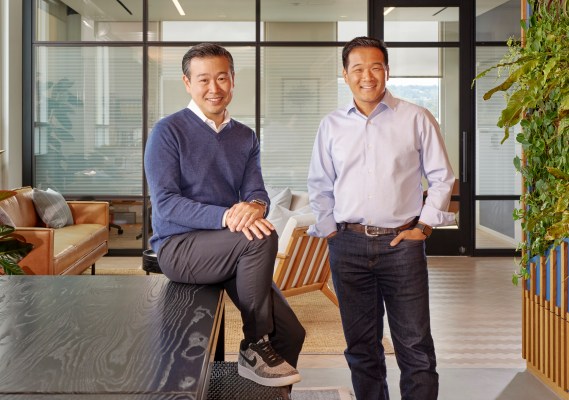Goodwater, one of comparatively few firms to focus exclusively on consumer tech investments, has closed on $1 billion in capital commitments across its fifth early-stage fund and its third opportunity-style fund, TechCrunch is first to report. The bulk of the capital — 60% — will be invested in early- and seed-stage outfits.
The Burlingame, California, firm, which now has $3.3 billion in assets under management, has seen a handful of notable exits over its nine-year history. It invested in the lip-syncing app Musical.ly, which reportedly sold for upward of $1 billion in 2017 to ByteDance (which then shut it down and combined it with TikTok). It also backed the Croatian math app Photomath, which Google agreed to acquire last year for an unknown amount; it bet on the cash-back offers startup DOSH, which sold to the digital advertising platform Cardlytics for $275 million in cash and stock in 2021; and it invested in the personalized vitamin company Care/of, the majority of which Bayer snapped up in 2020 for an undisclosed amount that valued the company at $225 million.
Founded by veteran VCs Chi-Hua Chien, formerly of Kleiner Perkins, and Eric Kim, long of Maverick Capital, Goodwater has now backed 79 early- and growth-stage startups altogether across 19 countries. Some of its most highly valued portfolio companies currently include the grocery delivery company Getir in Turkey, which has been gobbling up the competition in Europe as its money-losing rivals are forced to consolidate; Toss Bank, in South Korea, which was reportedly looking to raise funds at a $3 billion valuation a few months ago; and the so-called neobank Monzo in the U.K., which has been through a few tumultuous years but continues to grow.
Somewhat astonishingly, Goodwater has also issued checks to 600 seed-stage startups across 50 countries through a platform it has developed called Genesis that features “master class” level programming via pre-recorded modules by the likes of Tinder co-founder Sean Rad and former Amazon exec Jeff Wilke, who also happens to be a limited partner in Goodwater.
To gain admission, teams need only apply online; Goodwater’s minimal threshold for startups is that they have tens of thousands of users and tens of thousands of dollars in initial revenue. There is no cut-off period. Kim uses the term “open enrollment” to describe how the process works, then pokes fun at himself for using language that comes up at other Goodwater portfolio companies. In return, with the help of a platform team composed of “dozens of engineers, data scientists, product leaders, and ML experts that are building a customized set of services,” says Kim, Goodwater wrings out insights into dozens of geographies and ideas. (It also gets early access. To date, Goodwater has written Series A checks to six startups to come through its Genesis platform.)
That nine-year-old Goodwater remains committed to “consumer” is notable. Despite widespread interest in how tech can reshape how people experience the world, an uncertain economic environment and growing customer acquisition costs have driven many venture firms to dial back on funding products and services that depend on attracting and retaining individual customers.
It helps that Goodwater’s definition of consumer tech is broad and includes housing, healthcare, food, financial services, transportation, education, and entertainment. (Kim and Chien call them the “seven categories of human flourishing.”)
Investing globally gives them plenty of strong options, too, seemingly. That range has led them into deals, for example, like Stash, a New York–based investing app for beginners; the global live entertainment platform Fever, which is based in both Madrid and London; and a Seoul-based neighborhood social app called Karrot. In fact, more than half of Goodwater’s capital is committed to startups outside North America, primarily in Europe, North Asia, and Southeast Asia.
Either way, the pair say they are confident in their strategy of leaning in while others are running in the opposite direction. While they decline to share their cash-on-cash returns to date (“stay tuned” is basically their response when asked), they say that addressing consumer needs will never go out of style.
“We think about it from a first principles basis,” says Chien. “If you ask a billion people around the world what they need, every single one of them needs housing, health care, food, financial services, transportation, education, and entertainment . . . and we think there are massive unsolved problems in bringing better access to higher-quality, lower-cost versions of all of those things throughout the world.”
